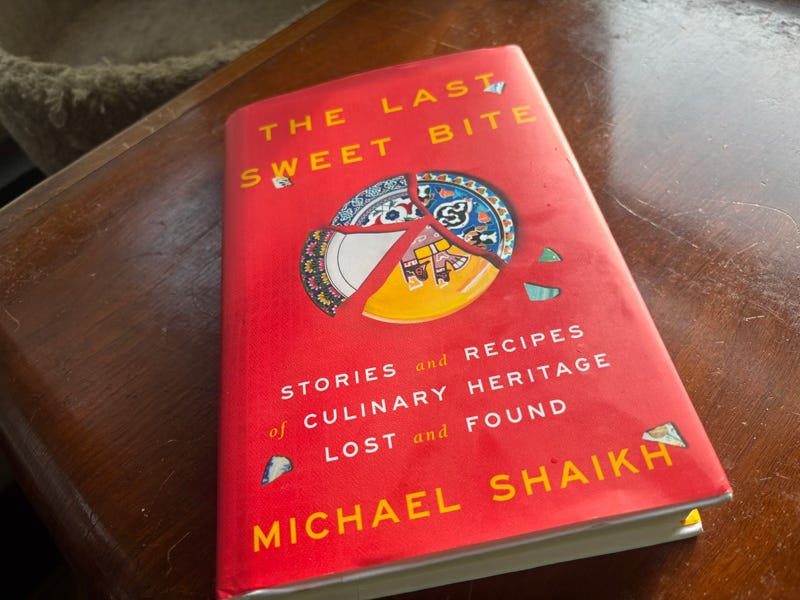THE COOKBOOK TEST #104: THE LAST SWEET BITE
INSTALLMENT #104 (PAID) HEAVY BOOKS / THE TROUBLE WITH DUMPLINGS
Dear Subscribers,
It's fair to characterize many (if not most) cookbooks as "light" - insubstantial, frivolous, and entertaining, like so many appetizers and desserts. Less frequently you'll get authoritative cultural surveys by way of food - the story of a whole country or region via the kitchen and dining room. More serious, for sure, and a lot more substantial.
And then there's a category of cookbook as testimony to the resilience of the human spirit in a time of trial or tragedy. There aren't many of these books, but they're special - they're generally written with equal parts of love, anger, and sadness, and they're surprisingly heavy reads considering that they're also manuals for making delicious foods.
When I flip through the archives of The Cookbook Test, I think about Prison Ramen (a window into the modern American carceral state), the World Central Kitchen cookbook (a look at people worldwide struggling to survive life-and-death crises, natural and manmade), and Code Noir (a culinary snapshot of racism, brutality, and the fight for independence in the Caribbean.)
And now I'll think about THE LAST SWEET BITE, a new cookbook by human rights investigator Michael Shaikh. More than any book I've read to date, The Last Sweet Bite looks at how food and culture are deeply intertwined, and how occupying forces attempt to pull them apart.
at your service,
James
THE LAST SWEET BITE
MICHAEL SHAIKH
CROWN | 2025 | $30
The Last Sweet Bite is equal parts history book, cookbook, and journal of current affairs. If you're interested in the roots of conflict and resistance, there's much food for thought here; if you're interested in recipes, there aren't a lot in the book (just a few per section), but they're thoughtfully and skillfully written, and they're freighted with a lot of meaning.
The book is broken down into six sections, each depicting a people (for example: the Czechs, the Uyghurs, Sri Lankan Tamils) and their relationship to their overlords and/or opponents (the Soviet Union, China, the Sri Lankan government).
Shaikh is exactly as nuanced and careful a writer as you would hope for someone venturing into topics that include war, totalitarian oppression, and even genocide. Shaikh's emphasis is on resistance (culinary and otherwise), but he doesn't romanticize his subjects. He generally depicts the brutal conflict of human versus human as a complex tragedy rather than a heroic fight of good against evil.
Keep reading with a 7-day free trial
Subscribe to The Cookbook Test to keep reading this post and get 7 days of free access to the full post archives.


